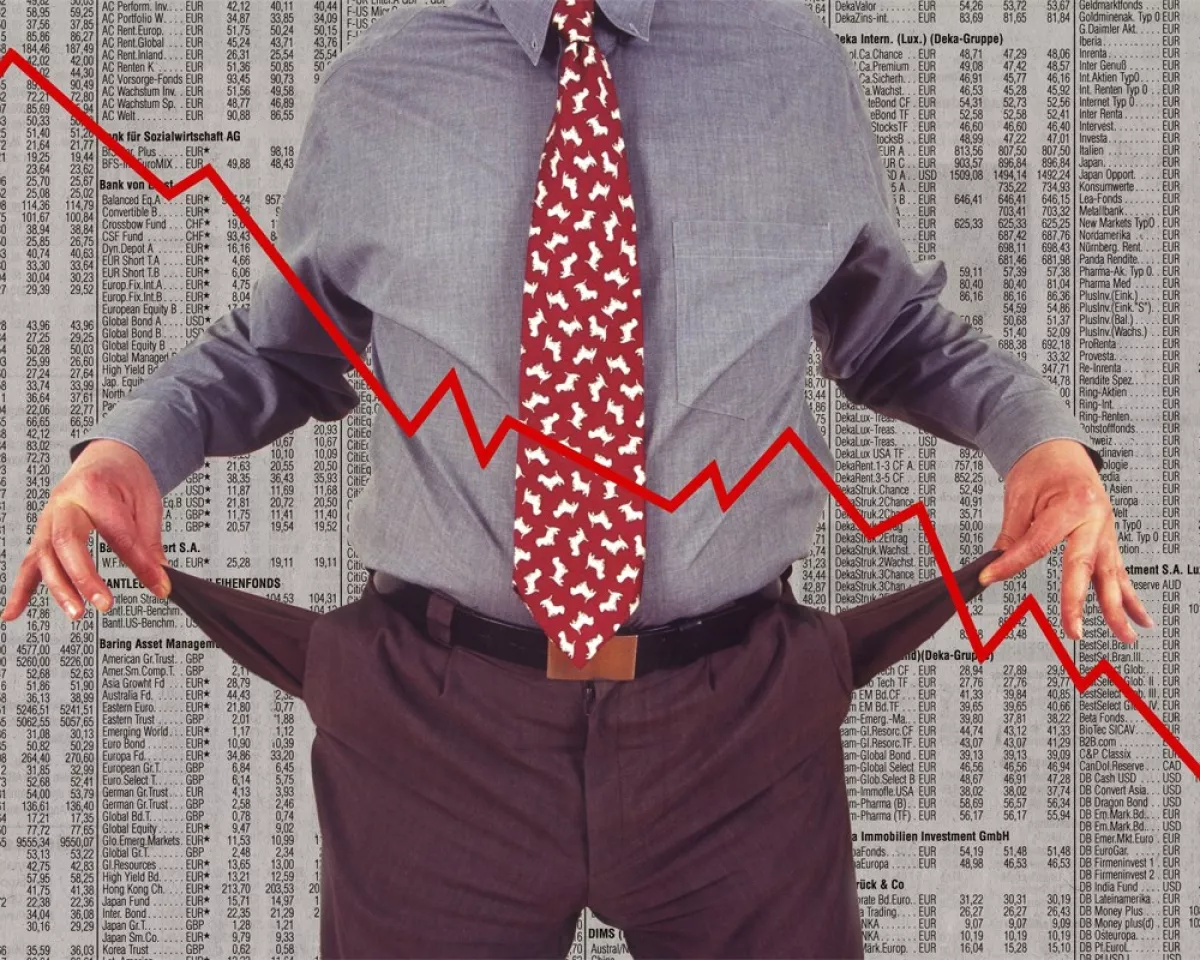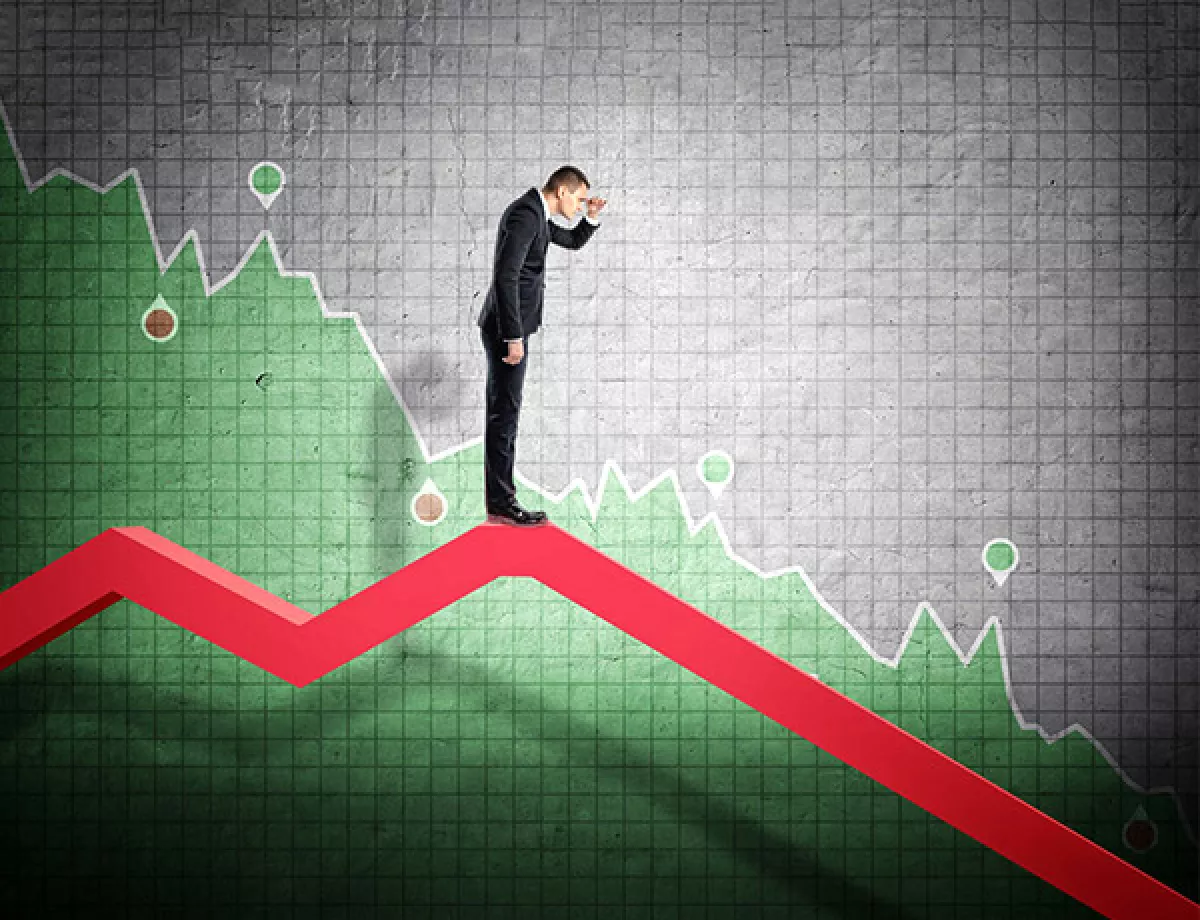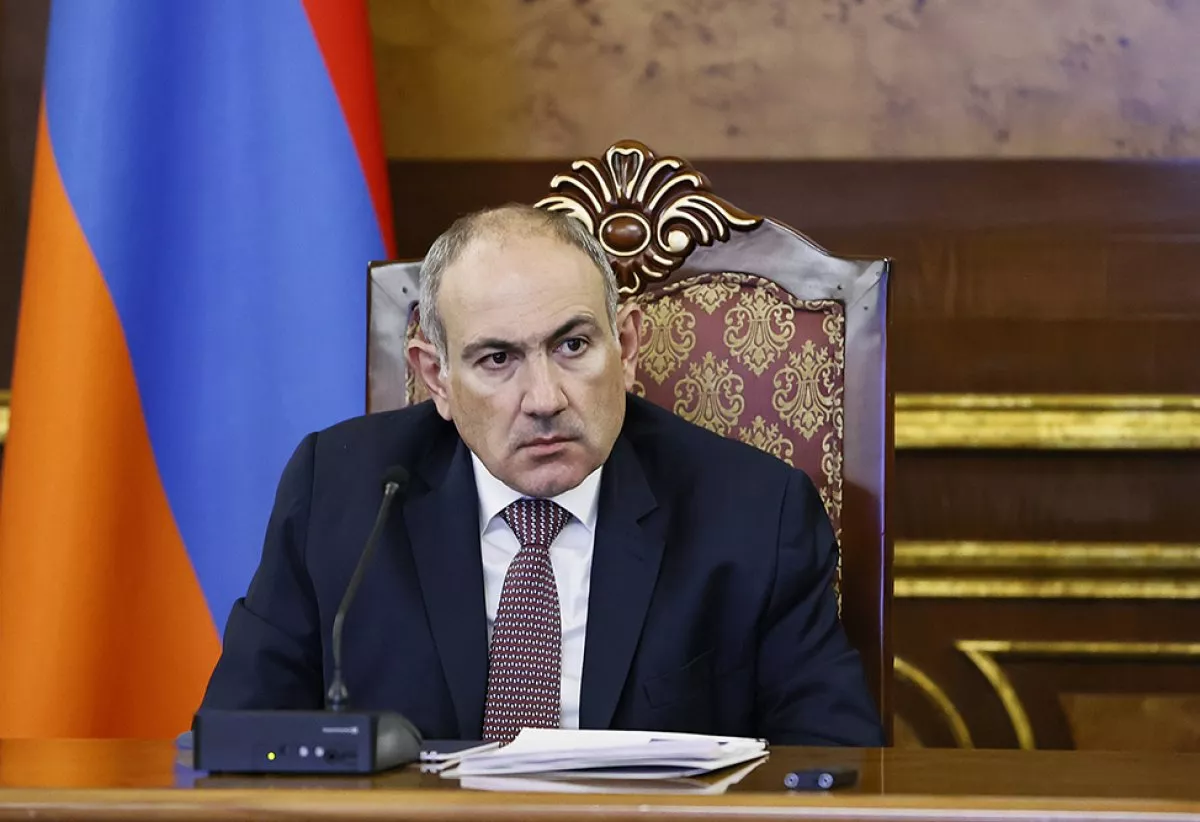EU and NATO’s military adventures amidst fantastical debts The emperor has no clothes!
On April 15, the Prime Minister of France held a press conference dedicated to the hopeless surge in his country’s debt. But it’s not just France—debt is soaring across the entire "collective West", particularly within the European Union. Against this backdrop, it is astonishing that instead of putting their economies in order, they have not only embraced a path of militarisation, but are actively engaging in foreign military escapades.
Countries as different as debt-ridden France and EU-funded Poland are increasingly devising dubious schemes—even in the South Caucasus, despite its significance for Europe’s strategic future. Or perhaps this is no coincidence at all? Perhaps these so-called “responsible democrats” are diving into overseas adventures precisely because they have failed so miserably at managing the basic development of their own countries.
France is sinking
There can be no more delay in tackling the French government’s budget deficit, declared Finance Minister Éric Lombard last weekend. As a result of unbalanced policies, the budget deficit surged to 5.8% of GDP last year, forcing the government to borrow money wherever it could—at interest. Lombard now hopes to reduce the deficit this year to at least (!) 5.5% of GDP. In other words, the aim is merely to slow the descent into the abyss.
Just a few days later, Prime Minister François Bayrou held a high-profile press conference on the “pathologies” of the budget, unveiling plans to cut next year’s (2026) budget spending by forty billion euros. His government promises to bring the deficit down to the Brussels-mandated threshold of 3% by 2029.
But it’s unlikely the government will last even until year’s end. The French Prime Minister was forced to take dramatic steps, as he heads a government that lacks not only a parliamentary majority, but even the support of most citizens. And don’t ask how that squares with democratic principles or why the French can't simply vote him out—within the framework of the Western liberal democratic model, there is no censored-free answer to that question. Macron calmly keeps the carousel turning, manipulating political forces and assembling feeble cabinets — Bayrou’s predecessor was dismissed in December after attempting to cut public spending.

Implementing such cuts is extremely difficult in a country where reserves from more prosperous years have long been depleted, a significant portion of colonial plunder has been exhausted, and even squeezing money from the domestic population has become a challenge — France is known for having one of the highest tax burdens in the world.
To make matters worse, last week economic growth forecasts for the EU’s second-largest economy were revised downward again—from 0.9% to 0.7%. Most likely, the debt spiral in Paris won’t stop anytime soon — at least not while Emmanuel remains in power.
The war for Ukraine’s legacy
As we know, none of this stops Paris from plunging into ever more foreign policy escapades. Among them are its endless intrigues with Armenian revanchism, arms deliveries to Yerevan that heighten tensions in the South Caucasus, and EU policies aimed at destabilising Georgia while disregarding Azerbaijan’s interests. But of course, these are mere details compared to the bigger picture: Paris, in close coordination with London, is busily dismantling the structures of the Western world and building a new military-political bloc—an alternative to NATO, a kind of “New Entente.”
This emerging alliance is already pushing beyond the institutional limits of the EU. Macron seems more than willing to find money for all of these ventures—over recent months, he has openly discussed raising France’s military spending from the current 2% of GDP to 3–3.5%, or even as high as 5%.
And this comes as no surprise, for in creating a "new Entente" and doubling down on prolonging the Russia-Ukraine war by any means necessary, Macron is trying to kill several birds with one stone. First, he aims to pressure U.S. President Trump and help his liberal allies in the United States return to power. Second, he is trying to recover — and ideally exceed — his financial and other investments in the Russia-Ukraine conflict. Incidentally, Macron’s Prime Minister, even while calling for a budget review, took a jab at Trump, accusing him — along with Russian President Putin — of creating a “tsunami of destabilisation” that is forcing the French to cut their spending even more hastily. This attack is no coincidence — Trump shattered the dream of the EU’s liberal elites to gain, as a result of the war with Russia, if not more favourable access to Russian resources, then at least control over Ukrainian resources and infrastructure.
Why is Macron playing such a desperate game for Ukrainian resources and infrastructure, which are rapidly slipping into the hands of Washington, unwilling to share them with the EU? The reason is that France is not just short of money — the French have long been living in debt. Last year alone, France's debt grew by €202.7 billion, reaching a total of €3.3 trillion. This amounts to 113% of GDP, even according to official statistics, and French officials are openly expressing doubts about the country’s financial stability. As Finance Minister Lombard pointed out: "Every year we have to pay back larger sums to creditors. So, we are already facing an emergency with regard to the budget. Last year, we paid over €50 billion in interest to creditors, and this year it will be over €70 billion. This is far more than the defence budget. Therefore, we must stabilise the debt, and to do this, we need to reduce the budget deficit."
The secrets of the "success" of the collective West
Similar problems exist in other "collective West" countries. In March, the Organisation for Economic Co-operation and Development (OECD) released its alarming annual report on "global debt." It warns that the debt-to-global-GDP ratio has started to rise again. Behind these lofty words lies an unpleasant truth, as the OECD is masking Western problems as global ones.

In 2024, governments and companies borrowed $25 trillion from financial markets, which is $10 trillion more than in the pre-crisis year of 2019 and three times higher than in the "good old days" of 2007. As a result, global debt from sovereign and corporate bonds surpassed $100 trillion by the end of the year and continues to grow. This is where one must watch closely the hands of analysts, who, like the magician Suleiman, claim "everything is fair, just sleight of hand and no trickery." The OECD consists of 38 countries, with few exceptions, all of which are members of the "global West." Naturally, such a structure has not highlighted the fact that the debt of developed countries is growing, and they are openly — using currency mechanisms and the structural features of the world order they created — living and fighting at the expense of the rest of the world. However, this fact is evident from the statistics on the issuance of sovereign bonds by countries: in 2023, it was $14 trillion, in 2024, it is $16 trillion, and this year a record $17 trillion is expected. These bonds are primarily issued by developed nations to refinance existing debt; this year, $13 trillion will be issued for this very purpose.
The fact that the so-called "developed countries" — primarily the collective West — have long been living increasingly at the expense of the rest of the world is clearly reflected in OECD statistics on the ratio of global debt to global GDP. For the first time since the pandemic, this ratio rose last year to 84% (up from 82% in 2023 and 72% in the last pre-pandemic year, 2019). Incidentally, the OECD notes that the bulk of borrowing over the past two decades has been spent on recovering from the 2008 crisis — a crisis triggered by the deregulation of banks that had built massive financial pyramids.
Against this backdrop, the French government's calls last week for further deregulation of the banking sector are especially telling — in other words, they are betting on inflating new financial "bubbles." It is worth recalling that one of the fundamental problems in the Western banking sector over recent decades has been the banks’ de facto ability to create money — for instance, by issuing loans not backed by actual funds on hand. This trend began in the United States and later swept through the EU. Initially, it leads to creeping inflation, followed by bursting financial bubbles and an explosive rise in housing prices.
This is a stark example of the irresponsible attitude of supposedly “democratic” politicians toward the interests of their citizens. Having driven their countries into debt traps, robbed their people through stealthy inflation, and stripped them of any real chance of buying a home, these politicians calmly continue their careers. For instance, the aforementioned French finance minister is a veteran of the banking and financial sector, having held top positions in it for several decades.
Where is Pashinyan looking?
The financial figures lay bare the hollowness of the grand rhetoric coming from Macron, von der Leyen, and the entire liberal EU establishment. Needless to say, the geopolitical ambitions of France and the European Union appear, to put it mildly, highly questionable. And it’s not just about how pitiful and humiliated the EU elite seem in response to Trump’s every move — including his crushing, arbitrary tariffs. Even Macron himself doesn’t dare challenge the U.S. president directly, delegating the task to his prime minister, who, given the weakness of his government, could be dismissed at any moment.
A telling example of the baselessness of France and the EU’s claims to global hegemony is their forced retreat from Africa in recent years. French and EU forces were pushed out, and all they could do was pack up and leave — turning their attention instead to the "white negroes" of Eastern Europe.

This is something Armenian Prime Minister Nikol Pashinyan would do well to consider. His own bitter experience should have long prompted him to ask a simple question: can the foreign allies he has pinned his hopes on actually deliver anything meaningful for Armenia?
The reality is that after the 2020 war, the French kept fuelling Yerevan’s hopes that Armenian nationalists could somehow retain their territorial gains. Yet that policy of dragging out normalisation collapsed spectacularly in 2023. Nevertheless, Yerevan seemed to take this failure in stride, opting to continue along the same path. Indeed, Paris soon escalated its involvement, beginning to supply Armenia with weapons. But the quantity and quality of this aid are barely sufficient to stoke regional tensions — not to mention the fact that in the event of another confrontation with Azerbaijan’s armed forces, the Armenian army stands no chance.
It’s also telling that the French government has repeatedly tried to shift even the meagre costs of these arms supplies onto the European Peace Facility — in other words, to make other EU countries pay. Pashinyan should have realised long ago that Macron, and the EU more broadly, simply don’t have the money. As the figures above demonstrate, they don’t just lack funds for Armenia — they are financially strained across the board.
Therefore, Pashinyan will not build a better future for Armenians alongside Macron and Ursula. That future can only be built through cooperation with Armenia’s immediate neighbours — starting with Azerbaijan.
Other countries that have flirted with Armenian revanchism appear no more capable or independent in their actions. Take Poland, for example. Its leadership is currently working hard to increase the Western military presence in Armenia via EU and NATO channels. The Polish president has repeatedly pledged to strengthen the EU’s monitoring mission in Armenia and even personally visited the Armenian-Azerbaijani border to “patrol” the area.
Since joining the EU in 2004, Poland has received more than €162 billion in net subsidies from the EU budget — that is, after subtracting its own contributions. These subsidies have increased in recent years, reaching around €13 billion annually since the early 2020s. Following a brief pause caused by tensions between Warsaw’s previous government and Brussels, Poland is once again expecting record payouts.
Fueled by these “clean” cash injections — supplemented by loans both within and outside the EU — Poland has purchased vast quantities of weapons and doubled the size of its military in the past five years to 200,000 troops. In March, Warsaw went even further, announcing plans to more than double that figure again — to half a million soldiers.
While officially justified by the “Russian threat,” this military build-up seems more like an attempt by Poland to position itself as the region’s military hegemon — ahead of the eventual return of its traditional rival, Germany.
What’s more relevant to us now is Poland’s growing involvement in the South Caucasus. The current Polish government has thrown its support behind the EU-backed “Maidan”-style movement against Georgia’s legitimate government, and both the current and previous Polish administrations have flirted with revanchist elements in Armenia. True to form, Warsaw’s politicians justified their actions in the region by invoking the “Russian threat” — even while backing an Armenian government that is the only one in the South Caucasus to host Russian military and FSB units on its territory.
We can set aside the ethical concerns surrounding this hypocrisy and Poland’s meddling in the affairs of other sovereign states — though these concerns are certainly valid. The more pressing issue is that this ambitious policy is, quite simply, beyond Poland’s means. Its sustainability is questionable at best. Should Brussels ever turn off the financial tap, the entire Polish foreign policy project would collapse — crushed under the weight of debt and overreach.
These are just two examples of the “financial nakedness” of Pashinyan’s key partners — and the list could easily go on. Even Armenia’s relationship with its most important partner, the United States, has taken on a reckless character, as Pashinyan’s team rushed to sign “strategic partnership” documents with the outgoing Biden administration. In fact, the entire foreign policy approach of the current Armenian leadership is built on adventurism — from dragging out the peace process to placing bets on inherently unrealistic alliances.
This adventurism hides behind grand speeches and ceremonial fanfare, but when one looks at the hard facts and figures, a different picture emerges. Those fond of meddling in the affairs of the South Caucasus may well be capable of disrupting and destabilising — but they are fundamentally incapable of building anything lasting, if only because they lack the means to do so.
Baku and Tbilisi recognised this reality long ago. That is precisely why external powers, despite repeated efforts, can no longer set the South Caucasus ablaze as they once did.








